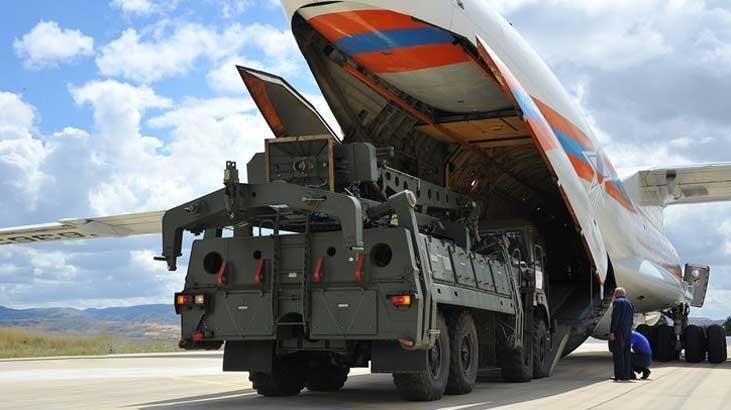
A senior Turkish official has said that Turkey delayed the activation of the Russian S-400 air defense systems due to the pandemic, but stressed the sophisticated military equipment will be operational as planned.
“There has been a delay because of the coronavirus but it will move forward as it was planned,” İbrahim Kalın, spokesperson and chief foreign policy advisor to President Recep Tayyip Erdoğan, told an online meeting hosted by the Atlantic Council on April 30.
Kalın did not give details about the length of the postponement of the activation of the air defense systems, an issue that has pitted Turkey and its ally the United States against each other. The U.S. has threatened Turkey with sanctions in the event that it activates the system.
Erdoğan has repeatedly told U.S. President Donald Trump about Turkey’s interest in purchasing Patriot systems, Kalın recalled.
Kalın stressed that Turkey had to purchase the Russian system because its request to acquire the American Patriot air defense equipment was denied by Washington. “Our president has spent a lot of time on this. But, unfortunately, we were denied,” he said, adding: “And then when our president raised the issue of looking an alternative and go for the Russian missile defense system, people thought he was bluffing. No, he never bluffs. He did not bluff. He straightforwardly said what he is going to do.”
Apart from the S-400 issue, Turkey’s expectations in regards to the members of FETÖ in the U.S. and the U.S.’s continuation of its support to the YPG in eastern Syria are contentious issues between the two countries, the spokesman said.
“There is certainly room for deeper cooperation between Turkey and the U.S.,” Kalın underlined, referring to whether the U.S. would remove this hurdle and stop introducing pre-conditions to move the bilateral relations forward.
US envoy recalls sanctions
U.S. Ambassador to Ankara David Satterfield, who joined the online panel, expressed Washington’s perspective concerning Turkey’s deployment of Russian military equipment.
Underlining once again that the S-400s are not compatible with F-35 fighters and the U.S. position on this has not changed, the envoy said, “We made our position quite explicit to President Erdoğan, to all the senior leadership of Turkey, and that is the operation of the S-400 system...exposes Turkey to the very significant possibility of Congressional sanctions, both those that invoke the CAATSA legislation and additional freestanding legislative sanctions.”
“We do not have in our possession the assurances from the government of Turkey that would allow us to mitigate those concerns,” Satterfield said.
Despite these continued disagreements, Satterfield maintained that the Turkish-U.S. relationship remains strong. “We cooperate extensively with Turkey, a partner, and a NATO ally,” Satterfield said, adding this partnership was demonstrated by the continued shipments of personal protective equipment and other supplies from Turkey to the United States to help in the fight against the coronavirus. “We have welcomed the Turkish contributions to the COVID fight,” he stressed.
Swap deal not politically linked
On a question, the envoy confirmed the Turkish government’s ongoing dialogue with the U.S. Federal Reserve for a swap deal. “There are certain requirements set by the open markets committee of the Fed with respect to potential eligibility. They are financial monetary requirements and conditions. They are not politically linked,” he said.